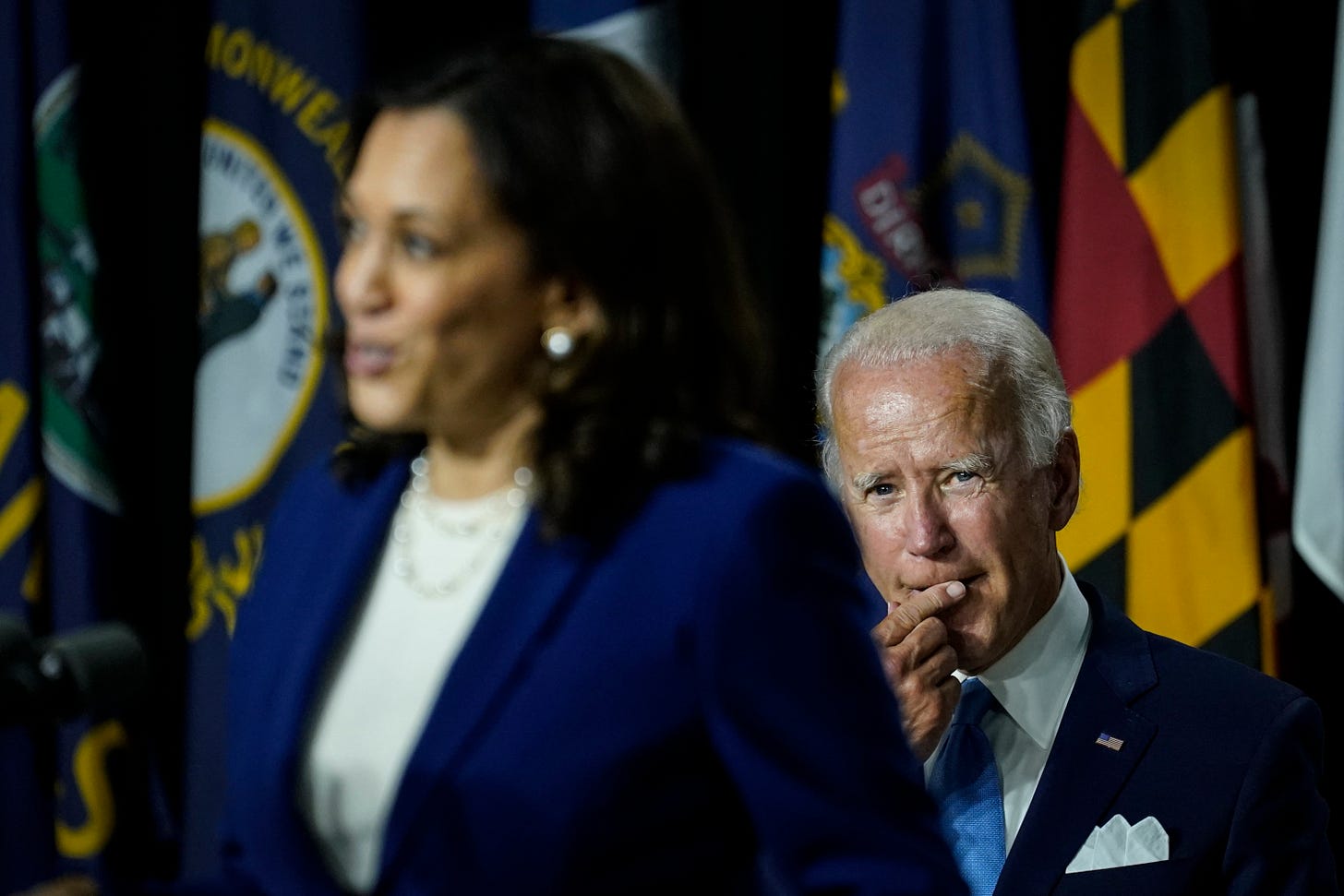Joe Biden: Puppet of the Progressive Left?
Or neoliberal savior?

Here are some headlines from the last couple days:



So let's get this straight:
Wall Street is happy with Kamala Harris and thinks she'll be good for business.
Left-wing activists are freaked out by her and think that Biden picking Harris signals that the progressives are losing.
The left-wing media straight up says, Hey Biden-Harris isn't on our side, we have to drag them to the left somehow.
And the Trump campaign's plan is to claim that Kamala Harris is a commie radical who represents an existential threat to the American order?
That just isn't going to fly outside the borders of anti-anti-Trump fantasy land.
There are two competing ways to view the Biden-Harris ticket in the context of the current Democratic party.
The first view is that Biden-Harris will be an empty vessel to be filled (or a puppet to be controlled, pick your metaphor) by AOC, the Squad, and the entire progressive movement's most radical agenda.
The second view is that Biden-Harris represent at least a temporary victory for the centrist wing of the Democratic party over the progressive left.
In the primaries, Biden gave a little on some issues (the Hyde amendment, climate change) and then stood firmly athwart the bulk of big-ticket items on the progressive agenda: He said no to Medicare for All, the decriminalization of illegal immigration, and reparations.
More recently, he came out quickly and firmly against the idea of defunding the police.
He personally intervened to have the word "occupation" removed from the Democratic party platform's reference to Israel and to make sure the platform condemned the BDS movement.
Biden's inner circle is largely comprised of people from the center left (Ron Klain, Mike Donilon, Bruce Reed, Chris Dodd) and for his running mate he chose a woman who the progressives distrust and whose policy positions will now move from where she had run in the primaries toward Biden's own, more moderate, stances.
So which view is correct? Is Biden, after crushing the party's progressive wing in the primaries, now just waiting to give in to radical politics that he has never espoused over the course of five decades in public life? Or has he successfully waged a battle to bring the party's progressive elements to heel so as to restore a center-left coalition?
Well, the future is always uncertain and we won't know until we get there. But one of these views is based on a pile of concrete evidence. And the other almost entirely on feelings, personal preferences, and special pleading.


